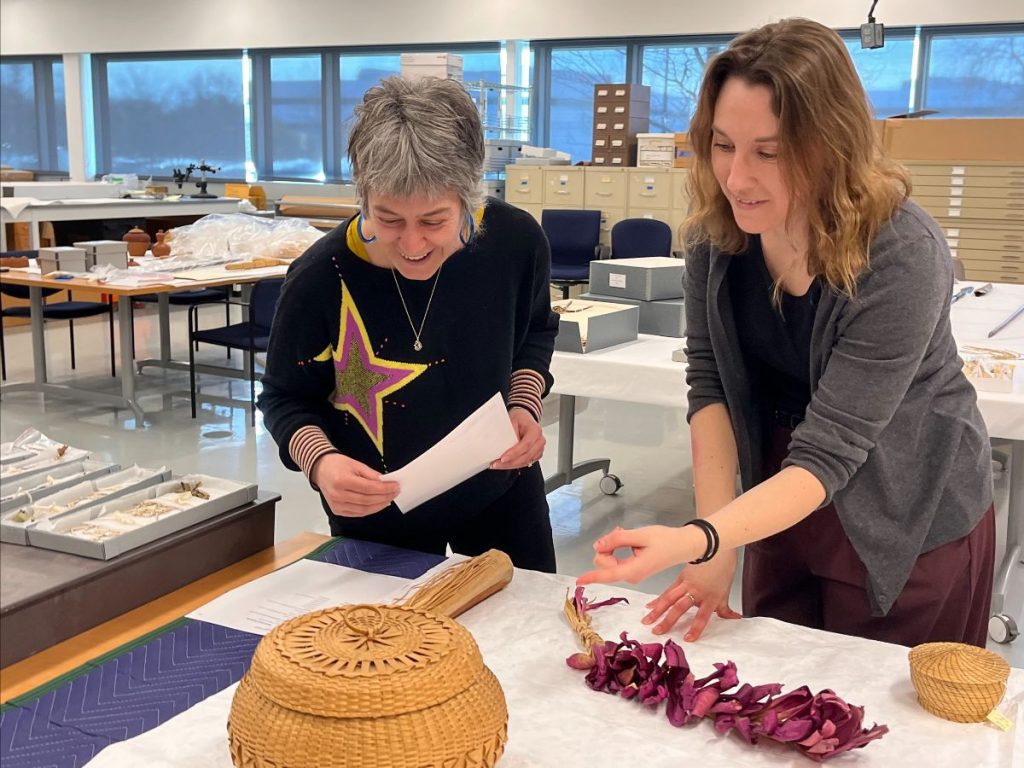From Cara Krmpotich

During March, GRASAC Co-Director Cara Krmpotich was invited to be the Visiting Scholar at the University of Michigan’s Museum Studies Program. Her keynote address for their 20th Anniversary Symposium, titled “The Seduction, Refusal and Retention of Universalism in Collections Care” drew upon GRASAC members’ work with the collections in Berlin, the Royal Ontario Museum, Vienna, and Native Canadian Centre of Toronto, and shared facets of the GKS redevelopment as well.
Cara also got to spend a morning with Andrea Blaser, Jim Moss, Kerstin Brandt, and Lisa Young in the collections of the University of Michigan’s Museum of Anthropological Archaeology. Andrea, Collections Manager for the Museum, had been a student in one of Annette de Stecher’s graduate courses! GRASAC will be working with Andrea and Jim over the coming months to integrate basketry from the collections into the GKS, though they have wide ranging collections including wampum strings from Walpole Island and incredibly well-documented varieties of corn and as well as plants used in weaving from Walpole Island and Garden River. Some of the historic corn from the Museum was re-planted in a recent partnership with local tribes!
During the Symposium, Courtney Cottrell (Tribal Historic Preservation Officer for the Brothertown Indian Nation) shared the Oneida Nation’s plans to redevelop their museum, originally founded in 1979. Amadeaus Scott, University of Michigan’s NAGPRA Collections Manager, also provided updates on the University’s compliance with the repatriation law, which has really turned around (in a positive way!) in the last ten years. The Symposium provided further opportunities to connect with Registrars from the Detroit Institute of Art and Toledo Museum of Art, and curators from museums across the US.
To wrap up the week, Cara and GRASACer Ricky Punzalan ran a workshop on reparative description. Attendees were invited to write descriptions of cultural belongings in different ways to understand the effects of changing the perspective, tense, agency and vocabulary on people’s engagement with, and ultimately their understanding of, cultural heritage. Cara and Ricky share the goal of creating more ethical, familiar and welcoming interactions between communities and their heritage – whether in digital or physical spaces.
